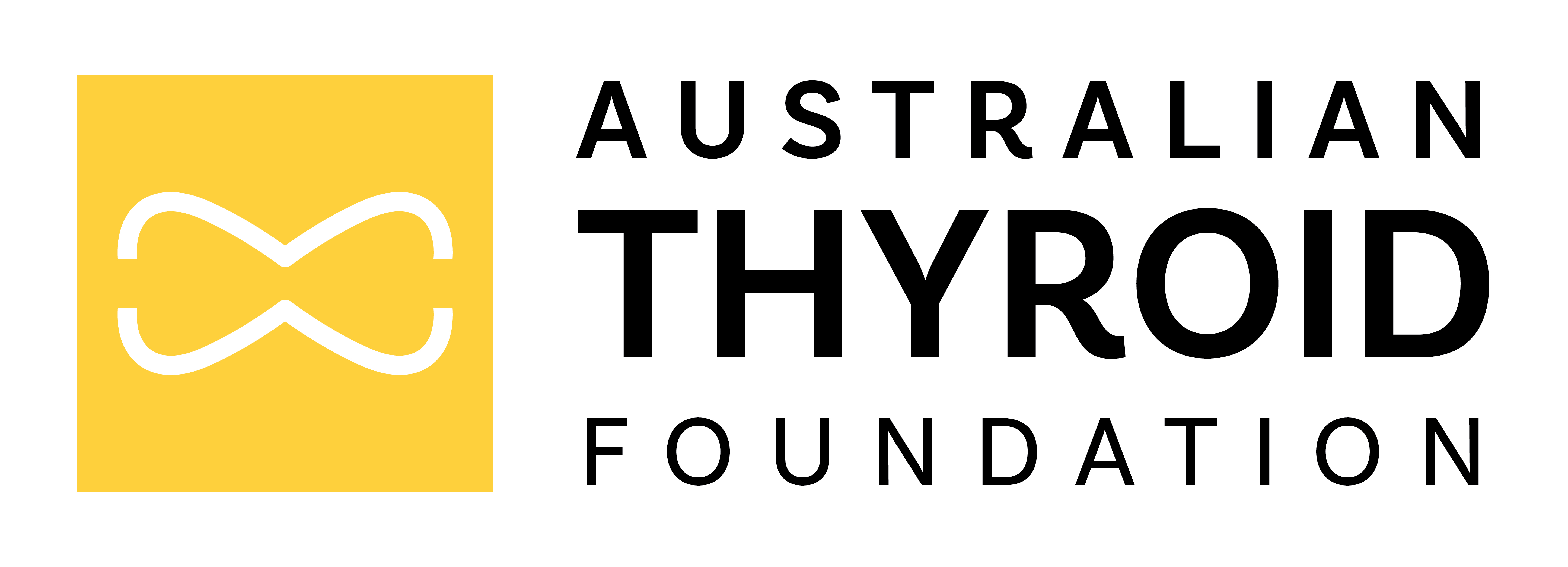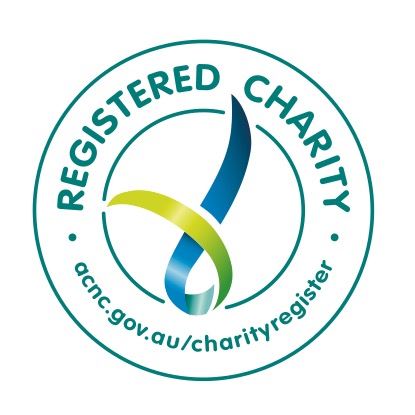Thyroid facts |
THYROID CANCER
Thyroid Cancer develops when thyroid cells divide in an abnormal way into one of the five types of Thyroid Cancer – What you need to know!
RESEARCH AND STATISTICS
- Average survival rate after 5 years is 97% with early diagnosis and treatments.
- Early detection, diagnosis and treatment is important for a positive outcome.
- Thyroid cancer occurs when cells within the thyroid gland divide and grow in a disorderly manner and become malignant.
- 2,744 women and 1,041 men are estimated to be diagnosed with Thyroid Cancer during 2020
- Thyroid Cancer was the 9th most commonly diagnosed cancer in Australia in 2016, with 2020 estimated figures to remain the same.
- Thyroid Cancer increased from 363 in 1982 to 2,973 in 2016.
- Thyroid Cancer is divided into five main types; most common thyroid cancers are Papillary and Follicular,
- Medullary, Hurthle Cell and Anaplastic are rare forms of thyroid cancer.
- Thyroid Cancer can affect all Australians of all age groups and demographics.
- Statistics show Thyroid Cancer is increasing amongst younger Australian women who are more at risk.
FOUR TYPES OF THYROID CANCER
- Papillary cancer is the most common type of thyroid cancer, representing approximately 70% of all cases. Papillary cancer develops from the thyroid’s follicular cells with a tumour forming in one lobe of the thyroid gland.
- Follicular cancer is the second most common type of thyroid cancer, with about 25% represented. This cancer also develops from the thyroid’s follicular cells.
- Medullary cancer is less common, representing about 4% of all thyroid cancers. This cancer develops from the C-cells. It can be linked to an inherited faulty gene or occur sporadically. A patient can inherit familial medullary thyroid cancer (FMTC or a type of multiple endocrine neoplasia (Men) syndrome. This puts the patient at risk of developing endocrine tumours.
- Hurthle Cell is a rare form of thyroid cancer. About 14 in 100,000 people are diagnosed with thyroid cancer annually, of which Hurthle Cell is about 3% of those diagnosed. Hurthle Cell is more common in women than men, usually from the age of 55 and older.
- Anaplastic is a very rare form of thyroid cancer. It is most common in elderly people. Representing 1% of all thyroid cancers. This type of cancer develops from the follicular cells or may develop from undiagnosed papillary or follicular thyroid cancer.
WHAT YOU NEED TO KNOW
THYROID ULTRASOUND
If you have any change to your voice, an unexplained cough, breathlessness, difficulty swallowing, pain in your thyroid gland or your thyroid gland is enlarged, please ask your doctor to order a Thyroid Ultrasound to determine or eliminate if the thyroid gland is the cause.
The physical health of your thyroid gland is separate to the function of the thyroid gland. A Thyroid Ultrasound is the test ordered to report the physical health of the thyroid gland.
FINE NEEDLE BIOPSY
Lumps, known as nodules in the thyroid more than 1.0 cm should be biopsied if there is a concern. Fine Needle Biopsy (FNB) can determine whether lumps (nodules) are benign or malignant. It is recommended that a FNB is performed by an expert to ensure the result is accurate.
If thyroid cancer is detected early, the outcome and recovery is usually very positive. There are many reasons why thyroid cancer can develop, and all Australians need to be aware, particularly if you have a thyroid disorder, family history of thyroid cancer or symptoms that need to be investigated.
Early detection is essential to ensure nothing is overlooked. If thyroid cancer is determined or suspected, a patient is initially referred to either an endocrinologist or endocrine surgeon who specialises in thyroid cancer for thorough testing, treatment and ongoing monitoring.
TREATMENT FOR THYROID CANCER
Treatment for thyroid cancer is surgical removal of the thyroid gland, (total thyroidectomy).
Radioactive Iodine therapy may be prescribed following surgery.
Lifelong thyroxine replacement therapy (Levothyroxine) is prescribed following surgery to ensure a patient’s thyroid function remains adequate.
Please read Treatments and Medications for more information.
THYROID CANCER SYMPTOMS
Thyroid Cancer can progress slowly, without obvious symptoms being recognised. Diagnosis can often be determined through an unrelated condition or physical change to the neck.
- A painless lump (nodule) which has grown slowly or in some cases, rapidly
- Unexplained cough
- A hoarse voice
- Difficulty swallowing or breathing
- Enlarged lymph nodes in the neck
- Pain or enlargement of the thyroid gland
If you have any of these symptoms, please consult your doctor. Initially, your doctor will usually order a Thyroid Ultrasound which shows the size, shape and texture of the gland and determined if a thyroid nodule/s is a concern.
If there is a concern, you will be referred to an endocrinologist or endocrine surgeon who specialises in thyroid cancer for treatment and ongoing monitoring.
Joining the ATF as a member, provides you with individual support, information and guidance to help you through your journey. We are here to help you.
Being aware is important, your thyroid health is essential to your wellbeing and general health, so speak to your doctor, if you have any symptoms or concerns.
If you have any questions or would like information, please email: info@thyroidfoundation.org.au
ATF Medical Advisors:
- Professor Leigh Delbridge – Endocrine Surgeon
- Professor Bruce Robinson – Endocrinologist & Co-Head Cancer Genetics – Kolling Institute of Medical Research
Contributed their expertise to the Cancer Council:
- Home
- Thyroid Facts
- Conditions
- Thyroid Cancer

